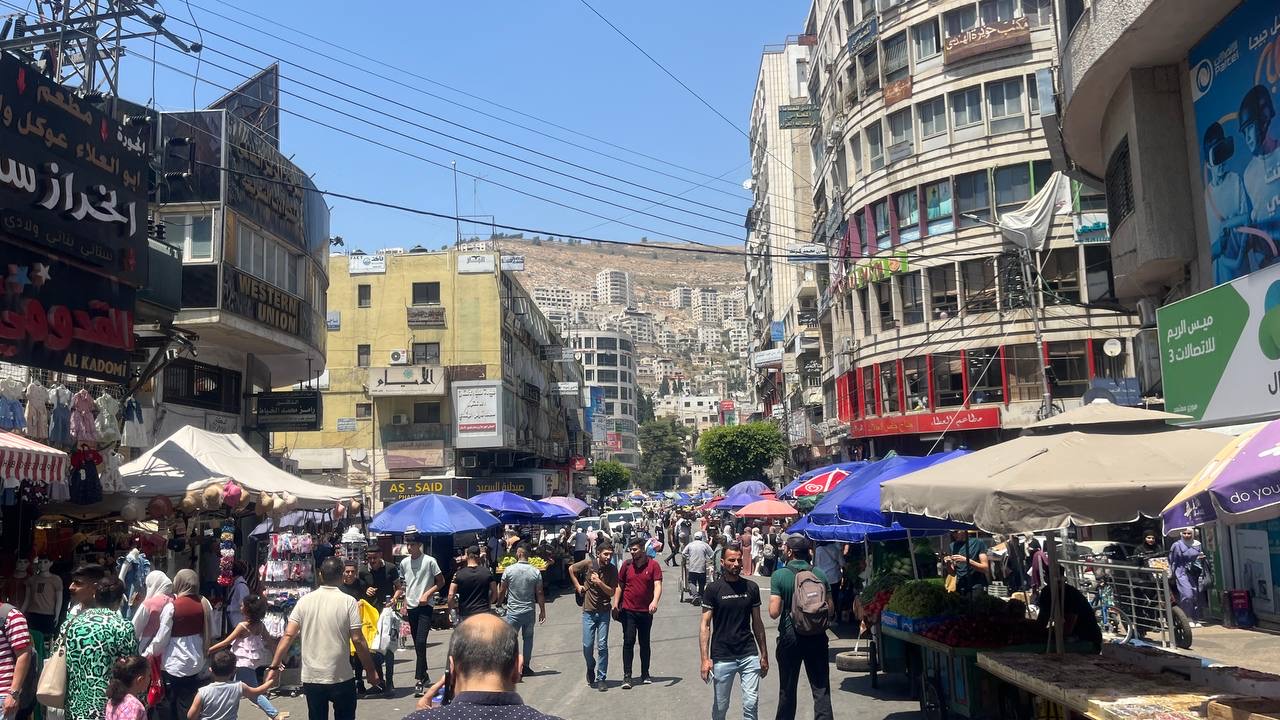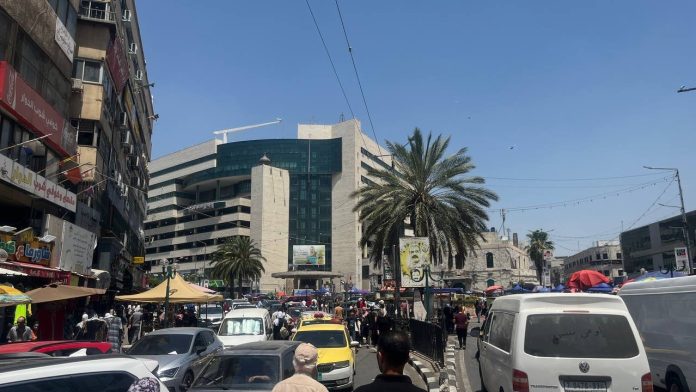By DANIA ABDELFATTAH
NABLUS, West Bank (almuharer) – A few days before Eid al-Adha, 31-year-old B. Darwish stands on a street in Nablus, looking wistfully at the goods displayed by merchants for the holiday. His financial struggles prevent him from buying new clothes for his three children this Eid.
Darwish, who previously worked in a furniture store inside the Green Line, shares how his life took a turn for the worse. “I haven’t been able to fulfill my family’s needs since losing my job eight months ago, specifically after the events of October 7. I used to earn 400 to 600 shekels daily, but now I can barely scrape together a fraction of that,” he says.
He adds, “I don’t know how to explain this to my children. I truly cannot afford anything. The holiday feels bleak due to the Israeli aggression. My wife had to reuse old clothes and make them appear new to convince the kids we bought them something.” Darwish’s daughters, aged 4 to 9, face severe health challenges. “I also need surgery, but I can’t afford even the minimum required health insurance contribution,” he laments.
“What do you expect from someone who cuts his own hair at home because he can’t pay for a barber?” he asks.
Darwish is just one of 178,000 Palestinian workers (according to the Palestinian Central Bureau of Statistics) who were employed in Israel and settlements but have been barred from reaching their workplaces since October 7, following an Israeli war in the West Bank parallel to the ongoing extermination campaign in Gaza.
Financial Strain and Reduced Cash Flow
While the loss of workers’ remittances deprived the West Bank markets of a vital cash flow, it wasn’t the sole factor stifling the Palestinian economy. The Israeli government has also withheld clearance revenues, which constitute approximately 68% of the Palestinian Authority’s (PA) income, leading to partial salary disbursements. This deepened the PA’s financial crisis and further diminished market liquidity.
Economic expert Dr. Tareq Al-Haj states, “The markets lost about 1.5 billion shekels monthly, the amount workers inside the Green Line used to inject into the economy. Adding to that is the nearly 1 billion shekels representing the monthly wages and allowances paid by the PA to 143,000 employees. The PA can no longer disburse these wages in full and is on the verge of defaulting entirely as its funding sources dry up amid Israel’s ongoing seizure of clearance revenues.”
In April and May, the PA managed to pay only 50% of public sector salaries due to the financial blockade. Unable to secure further loans from local banks and institutions, the government faces an intensified fiscal crisis, leaving employees to navigate an uncertain future.
Public sector employee Wissam Ajaj describes the dire situation: “We are living in an economic stagnation due to the lack of liquidity. I’ve had to adopt a minimalist lifestyle, focusing only on essential purchases.”
Ajaj adds, “These conditions make it impossible to plan for the future or manage household finances effectively. This uncertainty casts a shadow over our family expenses, especially during Eid, as we fear running out of cash too quickly.”
Mounting Debts and a Collapsing Economy
Data from the Ministry of Finance and Planning reveals that as of April 2024, public sector salary arrears had reached $1.18 billion. Public employees have not received full salaries since November 2021. The situation has worsened recently due to the war and Israeli policies. The Palestinian government also announced that its public debt had risen to $11 billion, encompassing local and foreign loans, as well as unpaid dues to employees, the private sector, and pension funds.
Merchants in the West Bank report a significant decline in commercial activity during Eid. Samer Al-Tarifi, a clothing shop owner in Ramallah, says, “The commercial activity here does not feel like Eid at all. Sales are nowhere near what we used to see during previous holidays.”
Hassan Awda, a Nablus-based computer and electronics retailer, notes that sales have dropped by 50% compared to the months before the conflict. “Merchants face higher import costs while consumers’ purchasing power declines. People now spend only on necessities,” he explains.
Awda continues, “Although we buy our stock with cash, we’ve had to adopt installment plans to accommodate people’s financial difficulties.”

An Economic War on the West Bank
Ayyam Abu Ghosh, coordinator of the Economic Journalists Network, emphasizes that the West Bank is enduring an economic war alongside the genocide in Gaza. “This war manifests in several forms: preventing workers from accessing jobs inside the Green Line, withholding clearance revenues, fragmenting Palestinian cities and villages to impede trade, and barring Palestinian citizens of Israel from entering the West Bank,” he explains.
According to the Palestinian Central Bureau of Statistics, unemployment in the West Bank rose to 32% in the fourth quarter of 2023, up from 13% in the previous quarter. Experts warn this rate could climb further if the current economic conditions persist.
A World Bank report predicts that the Palestinian economy could contract by 6.5% to 9.6% in 2024, citing continued economic uncertainty and a lack of prospects for recovery.


